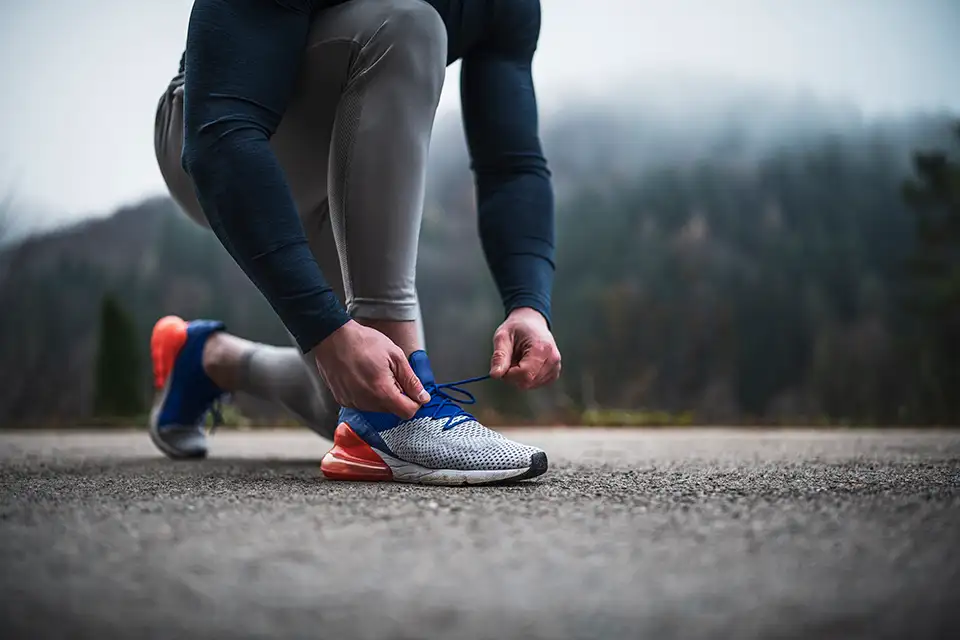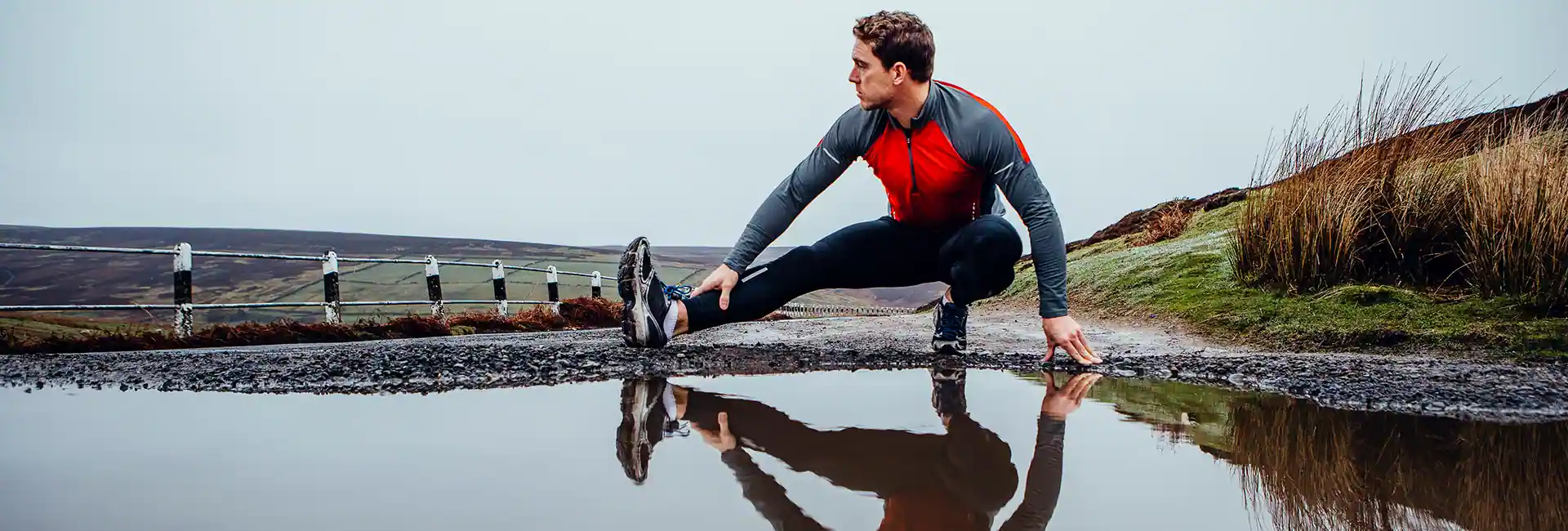Safety first
Before you start it may be advisable to get advice from a medical professional to ensure that you have no medical concerns that would mean that running is not recommended. If you have an existing medical condition like asthma or diabetes, there may be certain guidelines that are advisable regarding medication or nutrition.
Getting up and running
In this video, Jo Pavey talks you through making sure you have the right running gear, finding the confidence to start and how to establish a routine. If you have worries about running or maintaining motivation, this video will help you on your way.


Having the correct gear
Fortunately, running is not an expensive activity, you just need to ensure that you have a decent pair of running shoes so you've got enough support and cushioning to help prevent injury. You may want to seek advice from a specialist running store about which running shoe would suit you best. It's worth considering that models and colours of shoes that are not the latest can often be much cheaper and can also be bought online.
You'll want loose fitting clothing or running tights that don't restrict movement and allow you to move freely. Moisture wicking materials can make runs more comfortable, but you don't need to invest in expensive running clothing to get started. On colder days, aim for layers that are thin and light.

Finding the confidence to start
If you're new to running, the thought of starting a running programme may feel quite daunting to begin with. But remember, it's perfectly normal to feel apprehensive about heading out the door for the first time. Runners of all levels experience some self doubt now and again.
Use positive self talk to silence any negative thoughts, picture yourself achieving your goals. Feel proud of yourself for your decision to embark on a running program. If you're feeling doubt about being a runner, remember from those first running steps you take you can call yourself a runner, and with each workout your confidence will build.
Everyone has their own reasons why they want to start running. You may be wanting to lead a healthier lifestyle, lose weight or benefit from the many mental health improvements running can bring. So, focus on these positive reasons, believing in yourself and your goals.
Be proud of your decision to start running. It's more likely that people who see you will be impressed by your motivation, and many of them may wish they could have the same determination. Focus on the positives that running will provide to both your physical and mental health.
If you do feel anxious to begin with, you could gain confidence running early in the morning or late at night. Alternatively, drive to a quiet location whilst you gain confidence.
Ensure that you wear kit that you feel comfortable and happy in. Remember that the great thing about running is that it is such an inclusive sport. You only have to look at the brilliant parkruns that go on around the country. At a parkrun, you see so many runners of all different abilities running together, sharing their passion and encouraging each other.
Your first few times out the door may feel slightly daunting, but persevere and give yourself time to gain confidence. You'll soon be wondering what you were worried about, and your sense of achievement will outweigh any worries you had.


Worrying about your fitness
Remember, the build up of your running will be extremely gradual to begin with and you won't be running continuously. A lot of new runners mistakenly think that you need to start running without stopping to begin with. Running will be combined with walking, with the pace of your running sections not being important. Just run at a pace that feels comfortable and at a level you could still hold a conversation. It's totally normal that you might describe running as feeling extremely tough to begin with and doubts might come into your mind. But it will start to feel easier as you progress through your running plan. However, it's important to be patient because with any new exercise program your body needs time to adapt. It will be an incredible feeling when you shift from feeling like it's really tough to the point at which you've achieved a few milestones in your plan. You will realise that you feel confident and that running is such an uplifting part of your day.
A little bit of muscle soreness is likely in the days when you first start running. This is completely normal as your body is adapting to the new activity. This after exercise soreness usually starts to occur 24 to 48 hours after a workout and is referred to as DOMS (Delayed Onset Muscle Soreness). To lessen this, it's important that you run slowly to begin with to allow your body to adapt to running. If you're experiencing too much soreness, then it's fine to take an extra day off, or just go for a walk as gentle movement will help. Do some gentle stretching too. As you get more used to running you'll start to experience less problems with muscle soreness.

Maintaining motivation
All runners have days when they don't want to head out for their run. Setting yourself a goal will massively increase your motivation. You may even have a longer term goal in mind that you aspire to achieve after completing your first running program.
Focussing on what you're aiming for and knowing that each workout is part of your journey to achieve your goal will give you that reason to get out the door. On days that you're struggling, think about how much better you'll feel when you get back and you've finished your workout.
- Perhaps plan something to look forward to after you've completed it.
- Try making the effort to drive to a beautiful location for your workout, this will make your workout more enjoyable and give you a real boost.
- You could find a running buddy of a similar fitness level and work at the program together. Meeting up with someone can provide a real sense of camaraderie as you work towards goals together and encourage each other.
- Engaging in social networking sites for runners can be a great motivator by being in touch with others.
- Many runners also find motivation by listening to motivational music or podcasts.
- Keep a diary of your running so you can look back and realise the progress you are making.
Useful running resources
Health & Wellbeing updates
Subscribe to get regular update emails
The content of the WPA website, including the WPA Health & Wellbeing hub ('the hub'), is for information only and is not a substitute for professional medical advice or treatment and you should not rely upon it for that purpose.
Not all forms of exercise will be suitable for everyone. Always consult a doctor before beginning any exercise programme. To the extent permitted by law, WPA shall not be liable for any loss, liability or damage suffered or incurred as a result of using an exercise programme or accessing any information on exercise made available on the hub.


